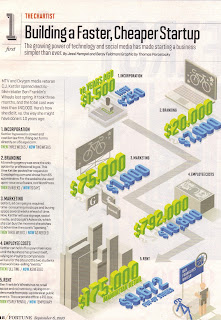 Take a look at the chart on the right. From 2009 to 2011, part of the "recovery" from the Great Recession, the wealthiest 7% saw a 28.2% increase in household net worth compared to a 4.3% decline for the other 93% of the population.
Take a look at the chart on the right. From 2009 to 2011, part of the "recovery" from the Great Recession, the wealthiest 7% saw a 28.2% increase in household net worth compared to a 4.3% decline for the other 93% of the population.The footnotes would indicate this is because the wealthy hold a substantial amount of their wealth in assets such as stocks and bonds that have appreciated significantly post-market collapse. In contrast, much of the wealth of the other 93% is tied up in home ownership.
So in a nutshell, the rich got richer and the less rich got more in need.
What's this have to do with the employment picture?
For one thing, it means (as if we didn't know already) there is real NEED in "I need a job or to keep my job". This type of need is a round-about indicator of supply and demand in the workforce - which is to say, there are way more in need (of a job / the job) than not. Hence, it's a buyer's market (employers buying service from employees) and double hence, another reason for stagnancy in the wages and benefits department.
Add to this scenario the ever increasing momentum of computer/digital automation and the impact on the job market is dramatic and ugly. The recovery has produced jobs but not of the type and quality needed to change the state of affairs indicated by the chart.
So how to play this, especially if you are someone in the 18 to 35 age bracket? Here are a few thoughts.
- Expect this situation to continue - plan for and around it.
- If you are in school or considering it, take a long hard look at what you are out to accomplish, asking - what is the end goal? what is the cost? and what options/alternatives are available that are quicker and cheaper than the track I am on now or considering?
- Get your head around the Free Agent concept ASAP - you ARE on your own - know it, see it, breath it!
- Prepare to move from position to position every 2 to 3 years, if not more frequently - build your plan around this fact.
- Consider any free or low cost certification programs (at your expense) that will complement the education and training you are now receiving or considering - these targeted goodies really add to your marketability.
- Stay out of debt - easy to say yet hard to do, I know - nonetheless there's a direct correlation between amount of debt and options available, and if you are in this age group you WANT options.
- And last but not least, a cliche, think outside the box - this is a sister concept to Free Agency - you MUST think and see things for yourself because the economic climate doesn't support any other way.
Travel well.
John Jeffrey Lundell
.jpg)





















+Fit+01.jpg)






